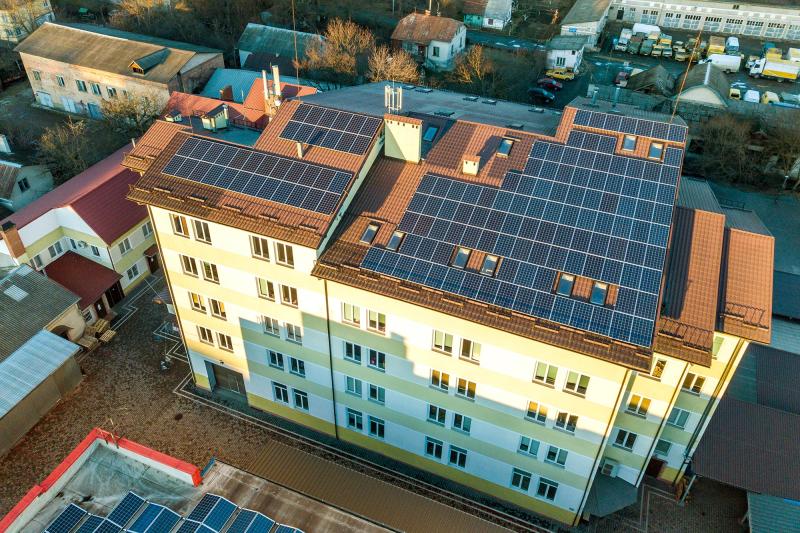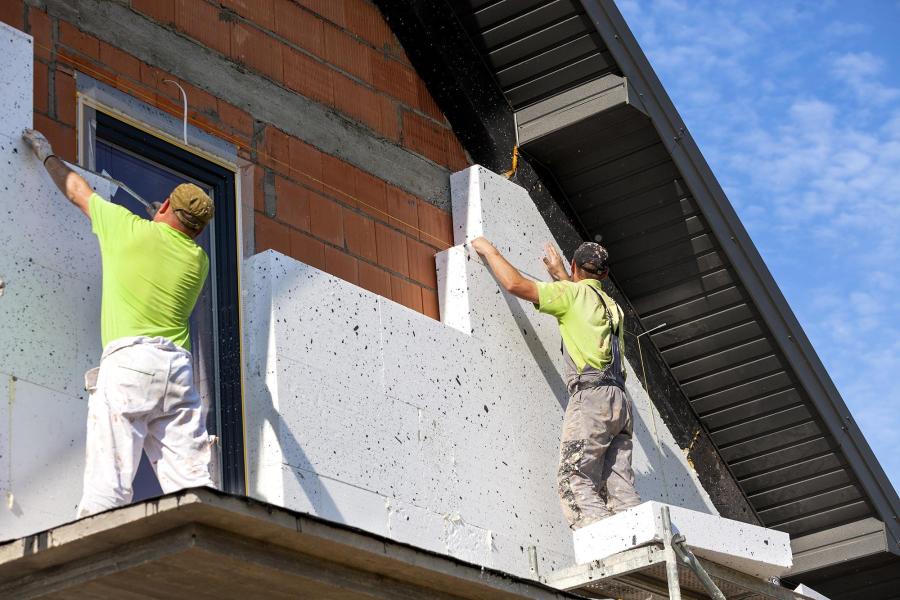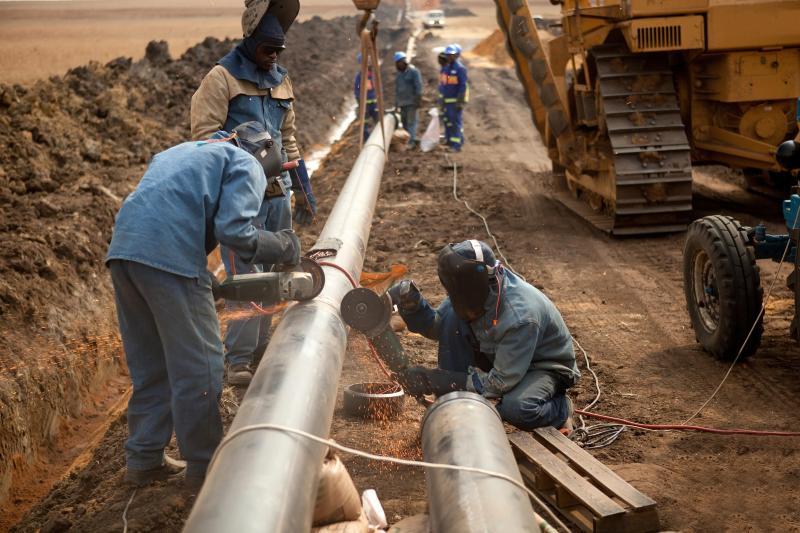Cities and regions across Europe slash costs and emissions with energy efficiency investments
Four out of five buildings in Spain consume more energy than they need to. Either they are poorly insulated or they use energy inefficiently. Unión des Créditos Immobiliarios, a specialised mortgage lender from Madrid, wants to change that.
Unión de Créditos Immobiliarios (UCI), which has operations in Spain and Portugal, is expanding loans to homeowners and associations managing buildings for projects that improve energy efficiency. The lender recently created the Residential Energy Rehabilitation programme to renovate and promote the use of renewable energy in least 3 720 residences in Madrid, Barcelona, Valencia and Seville. The works should reduce the total energy consumption of those residences by 50%.
“Our goal is to improve energy efficiency both in Spain and in Portugal, for homeowners and building owners,” says Cátia de Almeida Alves, sustainability and corporate responsibility director at UCI.
In Spain, most people live in apartments. Apartment buildings, in turn, account for about 67% of all buildings. Those apartments consume more energy than they need to, says Manuel Conthe, a loan officer at the European Investment Bank (EIB), which is providing financing for UCI’s energy efficiency loans as well as technical assistance for the residential rehabilitation programme. In Spain, “housing is the third cause of carbon emissions, only exceeded by industry and transport,” Conthe says.
While refurbishing apartments is key for cutting emissions and energy use, few projects receive external funds. “A survey carried out by the Spanish government indicated that only 2.3% of these renovations receive bank financing,” says Isidoro Tapia, a loan officer at the EIB. “So building renovations by homeowners associations is a segment currently underserved by third-party financing.”
UCI is trying to fill that financing gap – with the EIB’s help. UCI, which is a joint-venture between Banco Santander, the BNP Paribas Group and Cie Bancaire, received €2.6 million from the European Local Energy Assistance (ELENA) to set up the Residential Energy Rehabilitation programme. ELENA is an EIB-EU initiative that provides technical assistance for energy efficiency and renewable energy investments in buildings and urban transport.
The technical assistance comes on top of a €100 million loan the EIB signed with UCI in May 2020 to develop mortgages and “green” loans that target building renovations. In May 2021, the EIB invested an additional €50 million in a tranche of mortgage-backed securities containing loans for green renovation projects originated by UCI. The money raised from the sale of the securities enabled UCI to increase its lending for residential energy efficiency refurbishments, including loans to households and to homeowners’ associations overseeing works in buildings like condominiums.

The Residential Energy Rehabilitation programme will provide homeowners and associations with advice on how to best renovate buildings to lower their energy use and put them in touch with different partners to assist and accelerate the works.
UCI gained experience in providing energy efficiency assessments through its “green houses” initiative, which provides homeowners with a list of works that would improve energy efficiency, such as renovating a building’s façade, changing out old windows for better-insulated ones or installing solar panels on the roof.
“By knowing exactly what our clients need, we can act in a responsible and sustainable way,” says Philippe Laporte, chief operating officer at Unión de Créditos Immobiliarios.
The programme is expected to mobilise about €46.5 million in energy efficiency investments by 2025, cutting carbon emissions in half for the 3 720 apartments concerned and saving about 8.1 GWh of energy. The project is expected to help create about 220 new jobs.
- Read more about how EIB investments are helping to transform the energy sector
Refitting public buildings in Wallonia
Climate change and high energy prices are pushing developers to weave energy efficiency into buildings’ construction and to choose materials, designs and ways of working that save resources. Energy efficiency measures not only reduce energy waste, but they also promote the use of renewable energies like solar power.
B.E.FIN, a firm owned by the Walloon Region and Société régionale d'Investissement de Wallonie (SRIW), received a €3.5 million grant from ELENA to provide technical advice on energy efficiency investments for 262 municipalities in the Belgian region of Wallonia. B.E. FIN runs the RenoWatt project, which promotes the renovation of public buildings, by:
- selecting public buildings that are in need of renovation and pooling those buildings together;
- starting a procurement process to find suppliers or contractors to do the works;
- assisting public entities with projects’ implementation.
Four-fifths of the public buildings in Wallonia were built before 1991, says Paola Mendez, a senior engineer at the European Investment Bank. “Renovating public buildings is key to achieving Wallonia’s climate and energy goals.” Those goals include meeting an EU target of renovating 3% of public buildings per year.
The Wallonia project will renovate 500 buildings and save about 35% of the energy currently being used. It has the potential to cut 7 545 tonnes of carbon per year.

Tearing out old heating pipes in Lithuania
In Vilnius, worn-out heating pipes from the last century let hot air seep out and increase the risk of incidents, such as leaks and the cuts in heating to people’s homes. The city plans to rip out 17 kilometres of those old pipes and replace them with modern, insulated ones. The city will also add four additional kilometres of new pipes, allowing it to connect newly built houses and service buildings to the heating network.
“The modernisation and expansion of the heating network in Vilnius is a necessary step,” says Karolina Żelawska-Pałasz, who works in corporate lending at the European Investment Bank (EIB). The EIB is providing a long-term credit facility of €43 million to Vilniaus Šilumos Tinklai, the company that provides heat and hot water to Vilnius, for the modernisation works.
Plans also call for a new power plant running on biomass and solar energy and the installation of a absorption heat pump to generate heat more efficiently. Altogether, the project will update heating infrastructure for 200 000 homes, improving energy efficiency and cutting greenhouse gas emissions and other airborne pollutants.

